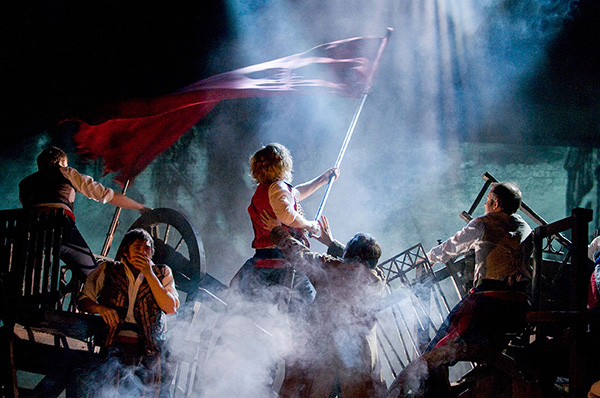
There is an unfortunate misconception among rare and frequent theatergoers that musicals and plays have specific roles to perform. Musicals are for light, flashy entertainment while plays are more serious and simple. Audiences have come to expect all musicals to be bright and over the top like “Big Fish” and “Kinky Boots” while all plays are to be sparse and heavy like “Waiting for Godot” and “The Glass Menagerie.”
This idea is unfortunate, but not unsubstantiated. Musicals typically demand larger casts than plays because they need a variety of voices for the chorus, and large casts can easily be misconstrued as overindulgent.
It is also tempting to take musicals less seriously because they literally show people singing and dancing their way through their problems. If not handled carefully, this can trivialize the conflict that drives the story. Musicals about children don’t help. Though “Annie,” “Billy Elliot” and “Matilda” are beloved by many theater fans, their shared underdog story formula doesn’t exactly challenge the expectations of musical theater.
Though singing and dancing tend to present a superficial approach to life, musical theater actually has an advantage specifically because it includes music. A good score can empower a character’s emotions in ways that spoken dialogue can’t always do, lending a positive spin to the extravagant nature of the form. Music can also add tension to emotional and physical conflict — “Les Miserables” and “Natasha, Pierre and the Great Comet of 1812” both include scenes where music superbly narrates inner turmoil as well as physical violence.
The perceived correlation between musicals and excess and plays and scarcity is limiting, because it underestimates the possibilities of both types of theater. However, as long as these conventions exist, there will also be productions that consciously rebel against them, which means exciting opportunities for eager audiences.
Suzanne Egan is a staff writer. Email her at [email protected].











































































































































